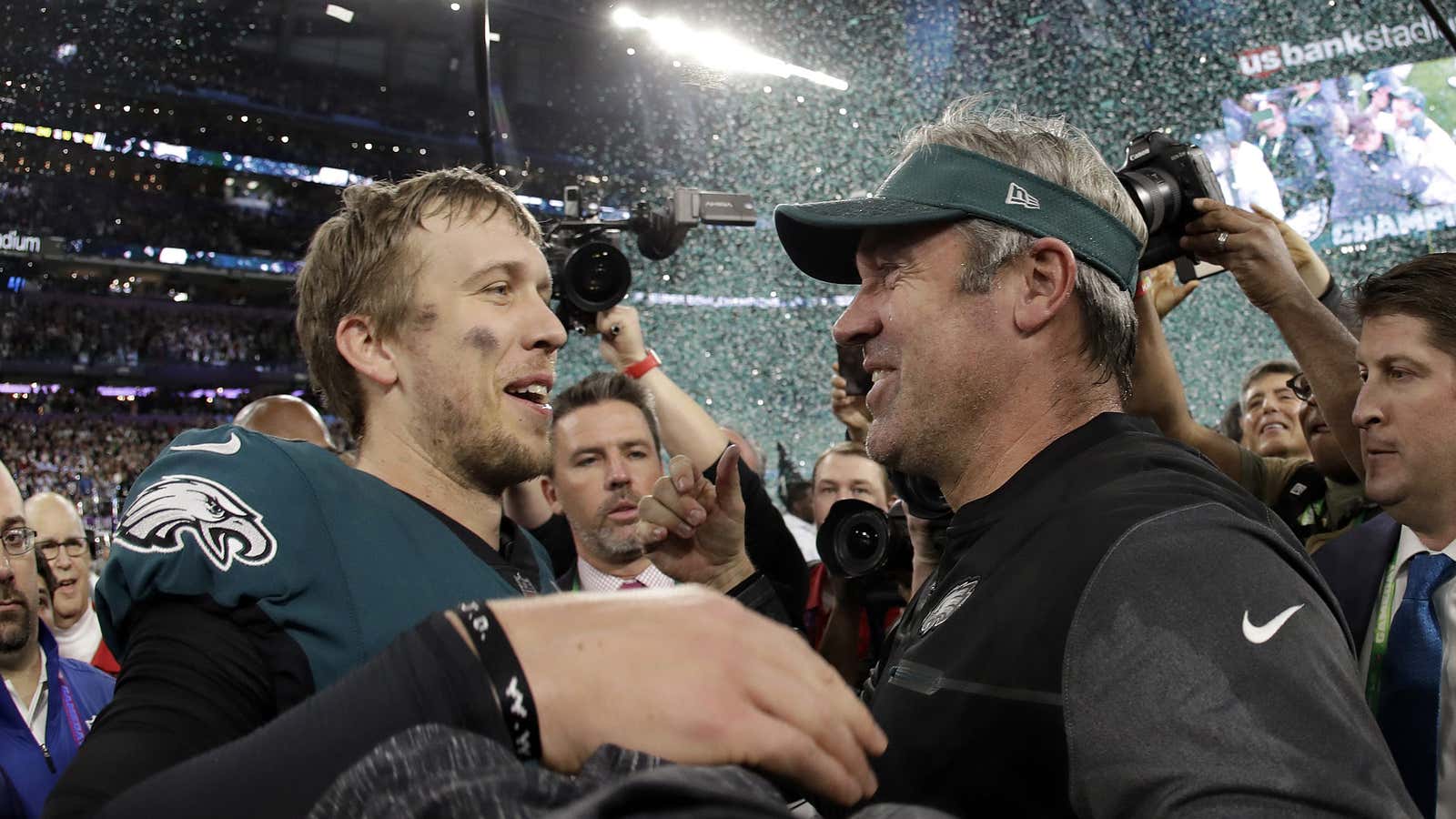The Philadelphia Eagles’ Super Bowl victory over the dynastic New England Patriots was a classic story of underdog pluck and daring, and no sequence better symbolized their determination than a trick play at the end of the first half.
For the non-Philly fans who haven’t memorized the details, the Eagles had the ball at New England’s one-yard line on fourth down. Conventional wisdom dictates they should kick a field goal and take the three points. Instead, they executed a bizarre play where quarterback Nick Foles—a backup to the injured starter—feigned talking to his offensive linemen, then wandered toward the end zone to catch a pass thrown by tight end Trey Burton.
It was the first time in 52 Super Bowls that a quarterback caught a touchdown pass, and it sent the Eagles into halftime with a 22-12 lead. The play was widely interpreted as a sign of Eagles coach Doug Pederson’s conviction in his team. But as NFL Films has revealed, the gutsy call wasn’t made by Pederson, but by Foles himself.
In the film, you can hear Pederson declare “we’re going for it right here,” then Foles approach him and suggests “philly, philly,” the name of the play (actually, Philly Special). Pederson—at what is likely one of the most pivotal moments in his career—pauses for a moment, then agrees with Foles. ‘Yeah, let’s do it,” he says.
The result was one of the most astonishing plays in football history, and neither man will ever buy a drink in Philadelphia again.
Football is one of the last bastions of command-and-control leadership. While smart managers understand that they can get the best results by empowering and trusting their employees, football—with its militaristic love of hierarchy and tradition—often still adheres to a top-down, dictatorial model of leadership. In the same game, for example, Patriots coach Bill Belichick benched starting cornerback Malcolm Butler, apparently without explanation.
But Pederson, 50, a longtime backup quarterback, is clearly cut from a different cloth. In his two years at the helm in Philadelphia, he’s created an atmosphere where players, even backups, are empowered to suggest plays at the most critical point in the team’s season (and, it turns out, franchise history). In 2016, before he had success as a head coach, Pederson was praised for his people skills. “He gets it,” tight end Brent Celek told NFL.com. “I don’t know how else to say it. He knows how to treat guys. He knows how to handle players. And he played for so long, and has been around so many situations, that he just doesn’t get fazed.”
Ultimately, the head coach is accountable for the team’s performance, and if Foles had dropped the pass in the end zone, Pederson, not Foles, would have been blamed. But it was Pederson’s faith in Foles that gave Foles the confidence to call the play, and perhaps, haul in the history-making catch.
